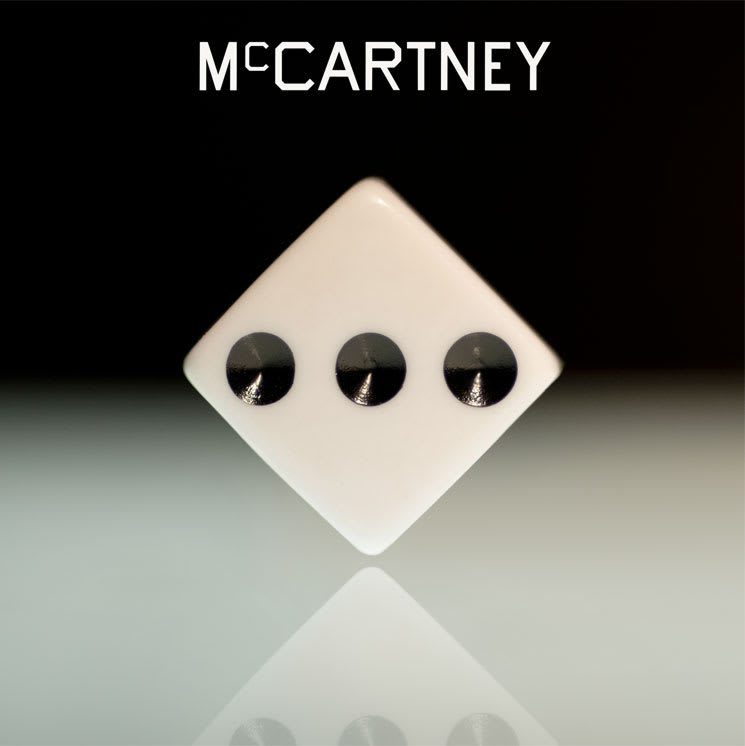Like its predecessors McCartney (1970) and McCartney II (1980), McCartney III was written, recorded and produced entirely by Sir Paul McCartney — this time, created alone during a COVID-19 lockdown. It is with McCartney III that one of the world's most celebrated songwriters has completed his trifecta of ultimate solo albums, proving yet again his legacy as a musical virtuoso.
From the very beginning, it's clear that this album is going to highlight McCartney's abilities as a composer. He's not concerning himself with writing any more hits; instead, he has chosen to display his talent and love for the instruments that have carried his career for over 60 years. Opener "Long Tailed Winter Bird" shows off his instrumental capabilities at their finest. With limited lyrics, the acoustic number highlights his talents as a guitar player. He uses unconventional harmonies but still finds a way to deliver an impressive instrumental track that's both rhythmic and dynamic.
McCartney conquers the blues on riff-laden "Slidin'" and "Lavatory Lil," of which the former showcases his multi-layered approach to songwriting as he performs a deeply complicated track that proves that rock'n'roll definitely isn't dead.
While instrumentation is the driving force behind the album, lyrically, McCartney doesn't fall short when addressing important issues faced in society today. On "Seize the Day," he warns about the climate crisis, while on "Find My Way," he addresses issues surrounding self-identity and anxiety. His vocals are consistently strong as he radiates enthusiasm throughout the entire record.
With much of modern day music originating from the experimental approach the Beatles took in the late '60s, it's a joy to see McCartney still exploring those sides in his current songwriting. It's safe to say McCartney hasn't abandoned his sense of exploration, as on eight-minute psych track "Deep Deep Feeling," which takes a sonic trip through his psyche.
The McCartney trilogy has charted a course through the Beatles' breakup to through the impending rise of new wave and synth pop and, now, to this year's extended isolation and the power of home recording. His music already transcended time, but with the completion of this trilogy he has drawn a link through the past 50 years with his virtuosic compositions.
(Capitol)From the very beginning, it's clear that this album is going to highlight McCartney's abilities as a composer. He's not concerning himself with writing any more hits; instead, he has chosen to display his talent and love for the instruments that have carried his career for over 60 years. Opener "Long Tailed Winter Bird" shows off his instrumental capabilities at their finest. With limited lyrics, the acoustic number highlights his talents as a guitar player. He uses unconventional harmonies but still finds a way to deliver an impressive instrumental track that's both rhythmic and dynamic.
McCartney conquers the blues on riff-laden "Slidin'" and "Lavatory Lil," of which the former showcases his multi-layered approach to songwriting as he performs a deeply complicated track that proves that rock'n'roll definitely isn't dead.
While instrumentation is the driving force behind the album, lyrically, McCartney doesn't fall short when addressing important issues faced in society today. On "Seize the Day," he warns about the climate crisis, while on "Find My Way," he addresses issues surrounding self-identity and anxiety. His vocals are consistently strong as he radiates enthusiasm throughout the entire record.
With much of modern day music originating from the experimental approach the Beatles took in the late '60s, it's a joy to see McCartney still exploring those sides in his current songwriting. It's safe to say McCartney hasn't abandoned his sense of exploration, as on eight-minute psych track "Deep Deep Feeling," which takes a sonic trip through his psyche.
The McCartney trilogy has charted a course through the Beatles' breakup to through the impending rise of new wave and synth pop and, now, to this year's extended isolation and the power of home recording. His music already transcended time, but with the completion of this trilogy he has drawn a link through the past 50 years with his virtuosic compositions.
